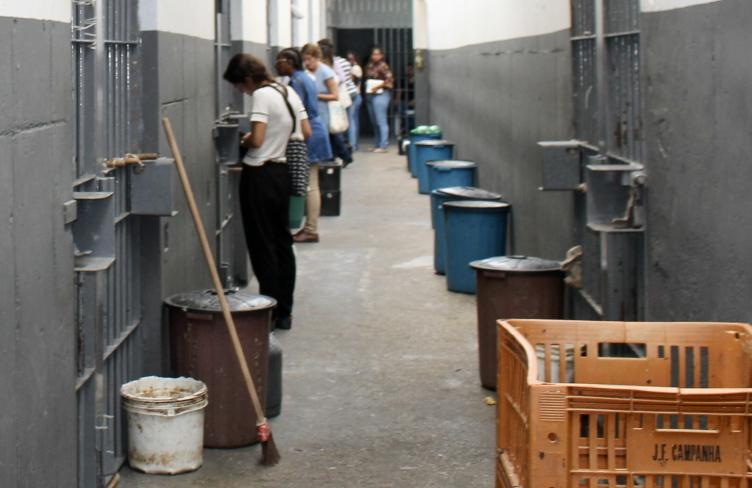
Promoting effective mental health care in prisons can have a profound impact for persons deprived of liberty, many of whom require consistent and specialised care.
Prisoners have a higher rate of mental health conditions than the general population, detention monitoring experts from across Europe noted at a regional workshop. Some people will experience mental health conditions prior to entering prison and some commit crimes as a result of their mental health condition.
Mental health conditions are also often associated with other factors that can increase a person’s risk of coming into contact with the criminal justice system, such as poverty, social exclusion, violence, low levels of education and substance use problems. Prison environments can then trigger and worsen mental health conditions.
Certain persons deprived of liberty, including women, girls and LGBTI+ persons often have higher rates of mental health conditions and specific needs for mental health support. Some may have experienced sexual violence and other forms of abuse and trauma before entering prison. Mothers can also be deeply affected by separation from their children.
In recent years, there has been increasing awareness and understanding of mental health worldwide. There is clearly momentum to advance on this issue."
The online workshop – jointly organised by the EU/ Council of Europe project “European NPM Forum” and the APT – brought together participants from more than 30 countries, including health experts and representatives from National Preventive Mechanisms (NPMs), civil society, international and regional monitoring bodies, and Council of Europe bodies.
Held on 14-15 February 2023, the workshop provided an opportunity to share insights from monitoring and good practices for protecting the rights of persons with mental health conditions in prison.
Drawing on the monitoring work of NPMs and other experts, some of the common issues identified across the region included:
- Limited resources allocated to mental health care in prison
- Inadequate mental health screening and assessment on admission and on a regular basis
- Lack of appropriate and comprehensive treatment for persons with mental health conditions, coupled with a shortage of specialised healthcare staff
- Lack of disaggregated data relating to persons deprived of liberty with mental health conditions
- Inefficient systems to divert people with mental health conditions outside prison
- Poor intersectoral cooperation between prison administration and health care services
- Lack of mental health awareness and training for prison staff
- High risk of self-harm and suicide among prisoners with mental health conditions and an overreliance on restraint and isolation measures to address this risk
- When available, mental health care and support is often not tailored to the specific needs of women and LGBTI+ persons.
“Very often, the root causes of poor mental health care in prison are to be found outside the prison walls,” said Veronica Filippeschi, APT Senior Adviser, Vulnerabilities and Policy. “This is why NPMs play such a vital role in addressing mental health in prison, and in detention more broadly. “
“Their broad mandate and systematic approach allows them to identify gaps and solutions, grounded in the first-hand information they gather. They are also able to facilitate multisectoral collaboration and coordination – between prison authorities, health institutions, legal actors, legislators and others – to promote access to effective mental health care.
“The APT will continue to support NPMs and other independent oversight bodies in their efforts to effectively monitor mental health care in detention,” Ms Filippeschi said.



